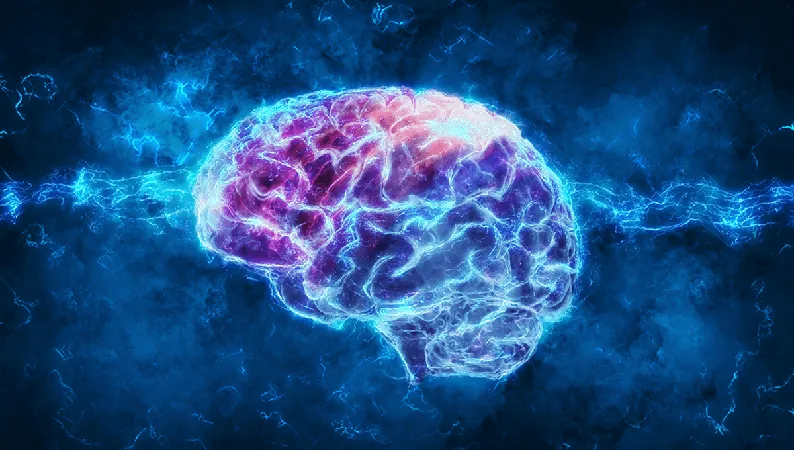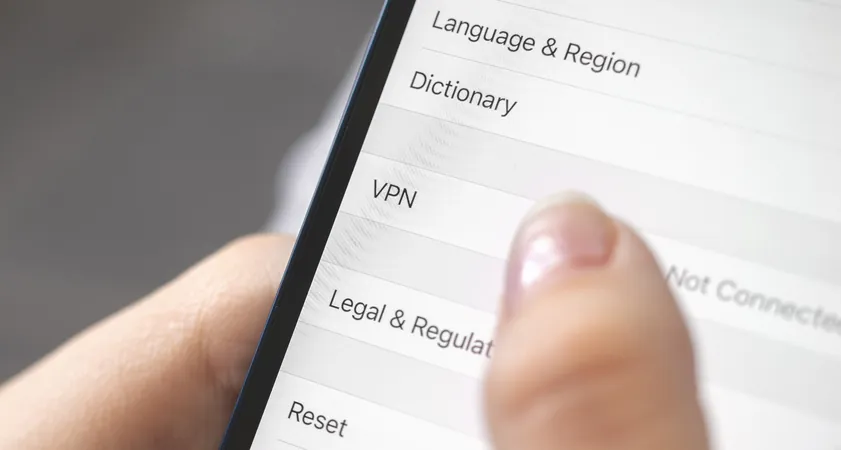
The Astonishing Truth: Human Thought Processes at Just 10 Bits Per Second!
2024-12-27
Author: Rajesh
Introduction
In a groundbreaking study conducted by researchers at Caltech, it has been discovered that the speed of human thought is remarkably low, clocking in at around 10 bits of information per second. To put that into perspective, consider that the slowest average internet download speed in the USA is predicted to reach an impressive 93 megabits per second in 2024—far surpassing our cognitive capacity!
Understanding Bits and Information
But what exactly does this mean? When researchers refer to "bits," they're talking about the basic units of data typically used in computing, where a bit can either be a one or a zero. Yet, this concept doesn't fully capture the essence of how information is processed. Researchers often distinguish between data (the raw numbers and codes) and information (what those codes signify). For example, if you text a friend asking the gender of their newborn, their reply—despite consisting of many bits of data—will convey just one bit of information.
Sensory Input vs. Conscious Thought
Vincent Gripon, an Associate Professor, notes that our brains sift through a staggering amount of sensory input—around 100 million bits per second from the visual cortex alone. Still, much of this data is essentially noise, barely registering as useful information for our conscious thoughts.
The Speed of Cognitive Processing
The challenge of quantifying human thought has captured the attention of information theorists. They found that while our brains are inundated with about a trillion bits per second of sensory information, the conscious thought process translates to a much slower pace. Researchers analyzed various tasks, such as typing or playing video games, and consistently found that human cognitive processing rates linger around this enigmatic 10 bits per second.
Typing Example
For example, an advanced typist typing at 120 words per minute generates 10 keystrokes per second, which upon analysis reveals a surprising estimate of 10 bits of information processed—indicative of the predictable structure of language that eases cognitive load. Interestingly, if tasked with typing a random string of characters, the speed drops drastically, emphasizing the efficiency of familiar language.
Implications for Technology and Evolution
Markus Meister, co-author of the study, remarked, “At any given moment, we're extracting a mere 10 bits from the ocean of sensory data that floods our brain." This revelation leads to profound questions about human cognition: Why can our nervous system process vast databases of sensory inputs while our conscious thoughts crawl at such a leisurely pace?
This limitation poses significant implications for emerging technologies like brain-computer interfaces. What if we can devise technology to enhance cognitive processes? Could we be bottlenecked by our biological capacities, similar to trying to utilize high-speed fiber optic internet through an outdated system?
Worryingly, this low rate of processing also brings up the evolutionary question of how our ancestors thrived, relying on just 10 bits per second. It suggests that the environments in which early humans lived presented slower-paced challenges, allowing for subsistence despite the cognitive limitations.
Conclusion
As the study concludes, it opens numerous avenues for exploration—especially regarding the disconnect between our brain's ability to absorb information at gigabit speeds and the sluggish processing power of our conscious thoughts, which remains largely an enigma.
As we delve deeper into understanding our cognition, this research offers more questions than answers, marking a pivotal point in the quest to unlock the mysteries of the human mind! Stay tuned, because this is just the beginning of understanding our cerebral potential.


 Brasil (PT)
Brasil (PT)
 Canada (EN)
Canada (EN)
 Chile (ES)
Chile (ES)
 España (ES)
España (ES)
 France (FR)
France (FR)
 Hong Kong (EN)
Hong Kong (EN)
 Italia (IT)
Italia (IT)
 日本 (JA)
日本 (JA)
 Magyarország (HU)
Magyarország (HU)
 Norge (NO)
Norge (NO)
 Polska (PL)
Polska (PL)
 Schweiz (DE)
Schweiz (DE)
 Singapore (EN)
Singapore (EN)
 Sverige (SV)
Sverige (SV)
 Suomi (FI)
Suomi (FI)
 Türkiye (TR)
Türkiye (TR)